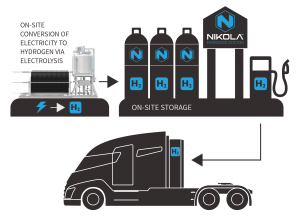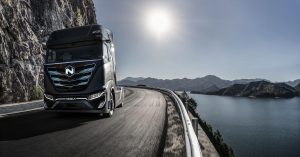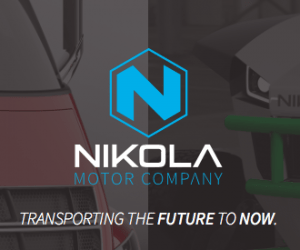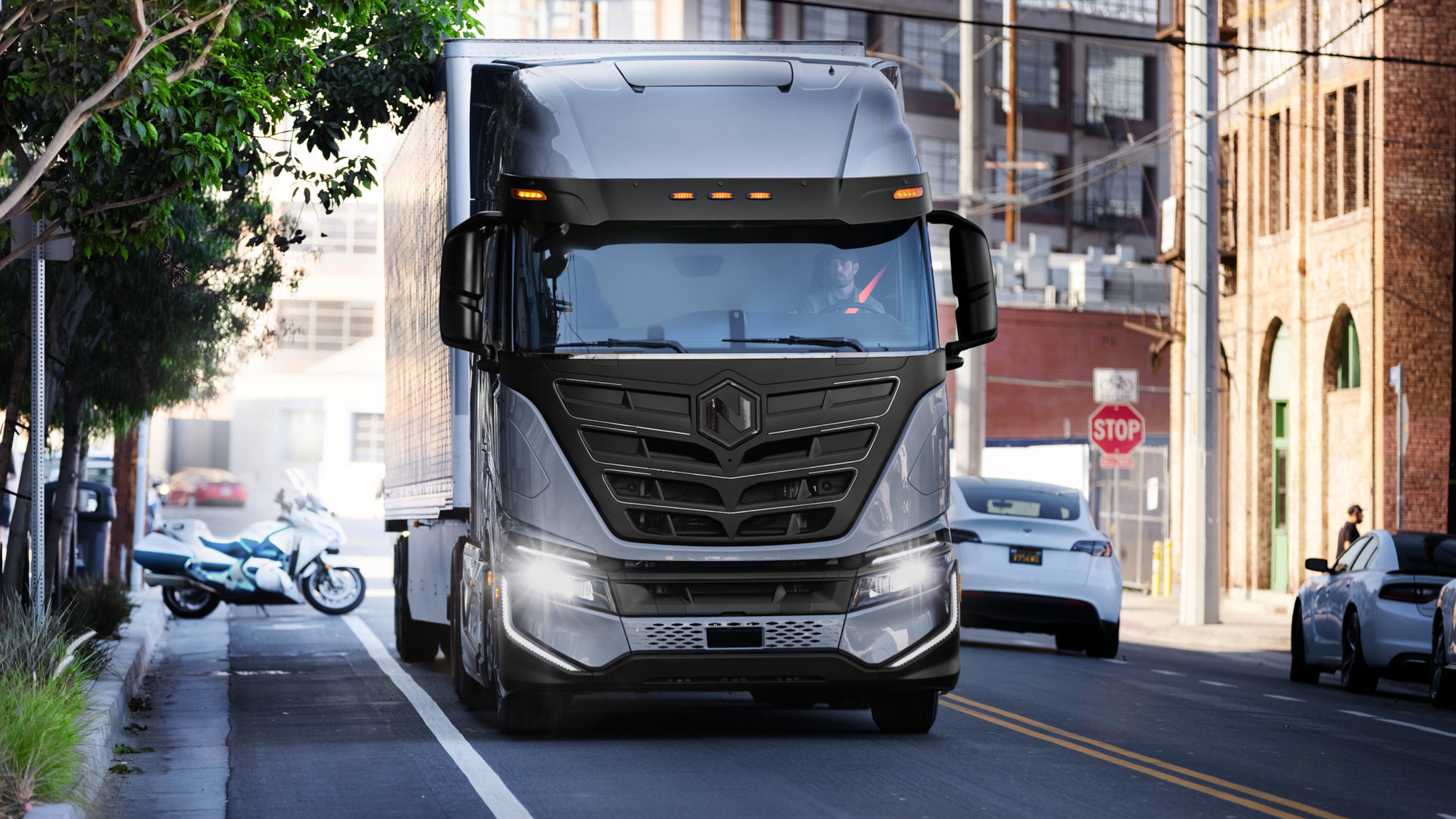Nikola EV Production Pause: A Strategic Shift

This decision stems from an oversupply of these models, allowing the company to reorient its assembly line towards more diversified vehicle builds.
Nikola, a leader in the EV industry, is temporarily suspending the production of its popular Tre battery electric vehicles at the Coolidge, Arizona facility. This decision stems from an oversupply of these models, allowing the company to reorient its assembly line towards more diversified vehicle builds.
Shifting Gears to Accommodate Hydrogen and Electric Technologies

Nikola’s production shift isn’t a retreat but a strategic move to accommodate both hydrogen fuel cell and battery electric builds on the same line.
The Nikola EV production pause isn’t a retreat but a strategic move to accommodate both hydrogen fuel cell and battery electric builds on the same line. This significant change was disclosed in their recent earnings release.
Embracing the Build-to-Order Model and Autonomous Tech
“This focus will reduce our cash burn and in turn help Nikola achieve profitability sooner.” – CEO, Michael Lohscheller
With the production pause, Nikola is refocusing its model to build-to-order for the battery electric truck and prioritizing autonomous technologies.
Enjoying our insights?
Subscribe to our newsletter to keep up with the latest industry trends and developments.
Stay InformedWhat Does the Production Pause Mean for Nikola?

With the production pause, Nikola is refocusing its model to build-to-order for the battery electric truck and prioritizing autonomous technologies.
The Nikola EV production pause is an indication that demand is currently not meeting supply. In the first quarter, 63 Tre trucks were produced, with only half of them making it to dealers. The pause will last from the end of May until July, aligning with the company’s capital allocation plans and improving working capital.
Nikola’s Plans for its European Venture
As part of its strategic shift, Nikola is also selling a stake in its European joint venture with manufacturer Iveco Group for $35 million. This move is to concentrate resources on the North American market, following the Inflation Reduction Act and state incentives for more energy efficient vehicles.
The Future of Nikola: Hydrogen Fuel Cell Technology
“The future of Nikola is hydrogen,” – CEO, Michael Lohscheller
As of Tuesday, the company had orders for 140 hydrogen fuel cell trucks from 12 end customers, and Nikola said it remains on track to begin hydrogen fuel cell serial production in July.
How Does Nikola’s Battery Electric Truck Fit into the Picture?

The Nikola EV production pause is an indication that demand is currently not meeting supply.
Lohscheller reassured, “The battery electric truck is a great product, and its development has allowed us to create many of the critical components and software systems that we can apply to the hydrogen fuel cell truck.” The Nikola EV production pause, therefore, is not an end but a new beginning for the company’s future.
Nikola’s Strategic Shift in the Midst of Market Changes
In the backdrop of a dynamically changing EV market, Nikola’s strategic shift underscores its commitment to staying ahead of the curve. The decision to pause production comes at a time when the company has identified a surplus in the supply of its Tre battery electric vehicles. The Nikola EV production pause is a proactive measure to manage this oversupply and recalibrate the company’s production strategy.
The Significance of Hydrogen Fuel Cell Technology in Nikola’s Vision
As part of this recalibration, Nikola is gearing up to embrace hydrogen fuel cell technology more holistically. This decision is a testament to the company’s foresight, recognizing the potential of hydrogen as a key player in the future of green energy vehicles. Moreover, by transitioning to accommodate hydrogen fuel cell builds on the same line as battery electric builds, Nikola is positioning itself as a versatile player in the EV industry.
Nikola’s Emphasis on Autonomous Technology

As part of its strategic shift, Nikola is also selling a stake in its European joint venture with manufacturer Iveco Group for $35 million.
In addition to hydrogen fuel cell technology, Nikola is also placing significant emphasis on autonomous technologies. According to Lohscheller, the adoption of autonomous technologies in trucks can help drivers and fleets operate more efficiently, which will be beneficial in reducing the company’s cash burn. The shift to a build-to-order model for the battery electric truck is another part of this strategy, catering to specific customer needs while optimizing production.
The Implications of the Production Pause
The Nikola EV production pause is more than just a temporary halt in operations. It is a strategic move aimed at aligning the company’s production with market demand, optimizing capital allocation, and improving working capital. While the company has faced challenges in matching supply with demand, as evidenced by the delivery of only 31 out of 63 produced Tre trucks to dealers, the pause is expected to help address this issue.
Navigating the International Terrain: The Nikola-Iveco Partnership
On the international front, Nikola is also making decisive moves. The company has decided to sell its stake in its European joint venture with manufacturer Iveco Group. This decision is part of Nikola’s broader strategy to focus its resources on the North American market, spurred by the Inflation Reduction Act and state incentives for energy-efficient vehicles. Despite the sale, Iveco will continue to remain an important partner and key supplier for Nikola.
A New Beginning for Nikola’s Battery Electric Trucks
Despite the production pause, Nikola remains committed to its battery electric trucks. The development of these trucks has enabled the company to create many critical components and software systems that will be applicable to the hydrogen fuel cell truck. Therefore, the Nikola EV production pause is not an end but a new beginning for the company’s ambitious vision in the EV industry.
Explore More Related Topics on Tank Transport
- For further information on Nikola’s past plans and developments
- Keep up with the latest updates on the trucking industry
- Explore more about the hydrogen fuel cell technology in commercial trucks
- Read more on the challenges and opportunities in the transition to electric vehicles
Dive Deeper: External Industry Insights and Resources
- Understand more about fuel cell technology and its role in transportation from the US Department of Energy
- Learn more about Nikola Corporation’s initiatives and technology
- Gain insights into the benefits and challenges of electric vehicles in the trucking industry from the International Council on Clean Transportation
- Explore the current state and future prospects of the hydrogen economy from the International Energy Agency



















